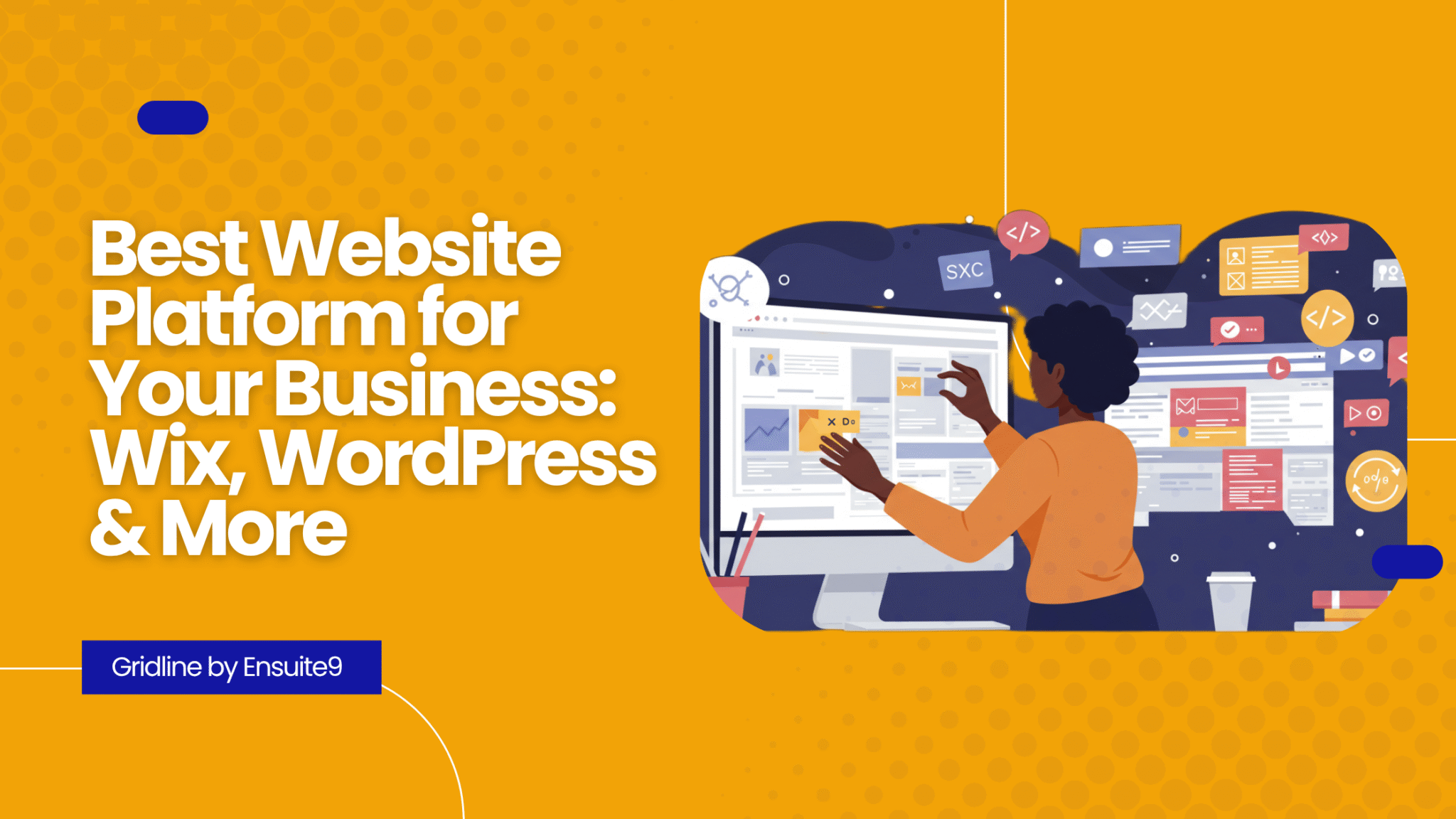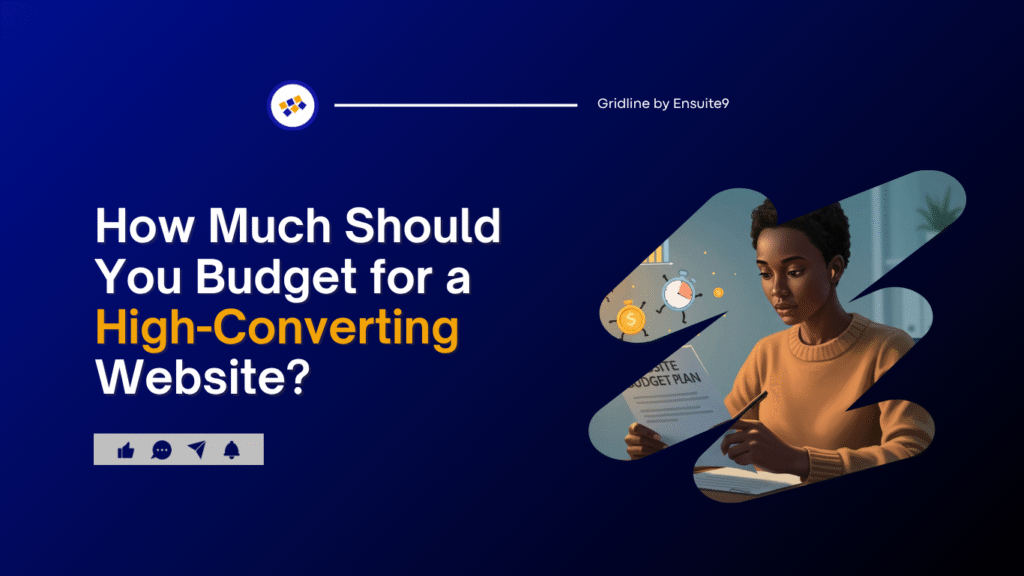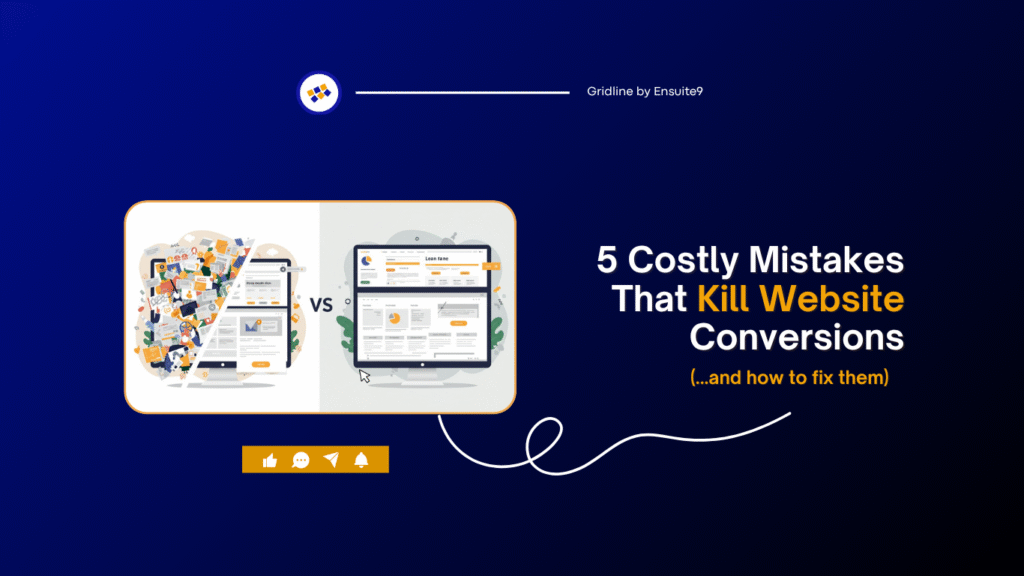When it’s time to build or revamp your website, the first decision you’ll make—before design, before copy—is which platform to use. It’s a big one. Because the wrong choice can cost you time, money, and even sales down the line.
Whether you’re launching a personal brand, an online store, or a service business, choosing the right platform will shape how easily you grow, manage content, rank on Google, and convert visitors.
Let’s break it down.
Why Platform Choice Matters
Your website platform determines:
* How customizable your site is
* How well it performs in search
* How easy it is to update content
* What kinds of features and integrations are available
* The overall user experience (both for you and your customers)
Choosing based only on price or ease-of-use (like many first-time site owners do) can backfire later when you need more functionality or flexibility.
The Big Players (And What They’re Best For)
1. WordPress (Self-Hosted)
Best For: Service businesses, content-heavy sites, scalability, SEO
WordPress powers over 40% of all websites, and for good reason. It’s flexible, highly customizable, and SEO-friendly. With thousands of themes and plugins, you can build anything from a blog to a full-blown ecommerce store.
Pros: Unlimited customization, large community, great for blogging & SEO
Cons: Slight learning curve, requires security/maintenance
(See: “From Strategy to Launch – What a Professional Web Design Process Looks Like”)
2. Wix
Best For: Small businesses and solo creators who need something fast and simple
Wix is drag-and-drop and beginner-friendly. You can get a decent-looking site up in a day. It’s great for personal portfolios or very simple business sites.
Pros: Easy to use, all-in-one platform, decent templates
Cons: Limited flexibility, not ideal for scaling, weaker SEO performance
3. Shopify
Best For: Ecommerce businesses
If your core business is selling products online, Shopify is built for you. It has inventory management, payments, and shipping tools built in.
Pros: Ecommerce-first features, easy integrations, secure
Cons: Monthly fees, less flexibility outside ecommerce
4. Squarespace
Best For: Creatives, photographers, consultants
Squarespace combines simplicity with sleek design. It’s great if visuals matter, and you want minimal setup.
Pros: Visually beautiful templates, simple setup
Cons: Less SEO flexibility, fewer advanced features
Questions to Help You Decide
Before picking your platform, ask:
1. Will I be blogging or publishing content often? If yes, WordPress is your best friend.
2. Am I selling physical or digital products? If yes, Shopify (or WordPress + WooCommerce).
3. Do I need full control over the design and structure? If yes, WordPress or Webflow.
4. Do I want something super simple to maintain? Wix or Squarespace.
5. Will my site need advanced features in the future? Go flexible from the start.
(See also: “What Makes a Website Convert in 2025?”)
What We Recommend at Gridline
At Gridline, we specialise in WordPress for one main reason: it balances power with scalability. Most of our clients grow their brands over time — and need a platform that grows with them.
We use custom themes to keep performance, SEO, and design quality high. And we optimise every site for speed, conversions, and content management.
Need an ecommerce feature? A blog? A client portal? WordPress does it all — with the right strategy and build.
Key SEO & Performance Factors to Consider
No matter what platform you choose, make sure it:
1. Loads fast (under 3 seconds)
2. Is mobile responsive
3. Allows for proper SEO tagging (meta titles, descriptions, schema)
4. Integrates with tools like Google Analytics, CRM, email marketing
5. Offers flexibility for growth
Hint: Platforms like Wix often fall short on these when you’re scaling a business.
Your Website Is a Long Game
Your platform shouldn’t just work now. It should still serve you a year, two years, even five years from now — without needing a full rebuild.
So choose wisely, based on where you’re headed — not just where you are today.
***
Need Help Choosing?
Still unsure what’s right for your business?
Let’s chat. We offer free discovery calls to help you choose the right platform and strategy — even if you don’t work with us.


